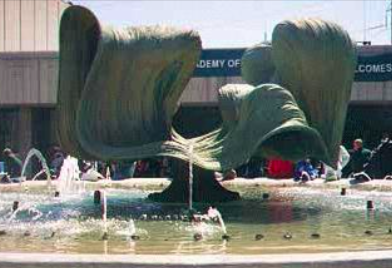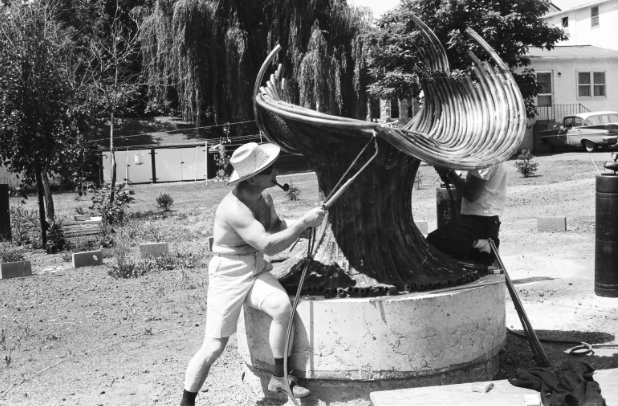
July 19, 2016
After spending 16 years in a North Philadelphia storage shed, an acclaimed sculpture created by multimedia artist and furniture designer Harry Bertoia will soon see the light of day in Chestnut Hill.
The Woodmere Art Museum announced that Bertoia's "Free Interpretation of Plant Forms," commissioned as a public art installation in 1967, will go on display as part of the museum's collection from Aug. 20 to Nov. 6.
Bertoia, an Italian-born American artist, was best known for his sound sculptures and furniture designs, though he was also an active jewelry designer and printmaker. The exhibition at the Woodmere Art Museum will focus on six public art installations he completed between 1967 and 1975, examining his aesthetic intentions and abstract language for the natural world.
Sculpture at former Civic Center.
Margot Berg, Philadelphia's public art director, told The New York Times that the four-ton sculpture was kept at the police yard because of its space and security.
“There aren’t a lot of spaces where you can place a 14-by-12-foot thing,” Berg said.
The sculpture, which has since received conservation treatment, became the subject of a $2 million fundraiser by the Woodmere Art Museum as city officials searched for an appropriate new home. In coordination with Philadelphia's Office of Arts, Culture, and the Creative Economy, Woodmere will keep Bertoia's copper-pipe sculpture on a 99-year lease.
Harry Bertoia and studio assistant Jim Flanagan weld copper pipes used to create Free Interpretation of Plant Forms in Bally, PA, 1966.
To celebrate the arrival of "Free Interpretation of Plant Forms," the Woodmere Art Museum will hold a Pop-Up Party from 6-8 p.m. on Friday, July 22. Additional information about the event can be found here.
 Source/Philart.net
Source/Philart.net Richard Schultz/HarryBertoia Foundation
Richard Schultz/HarryBertoia Foundation